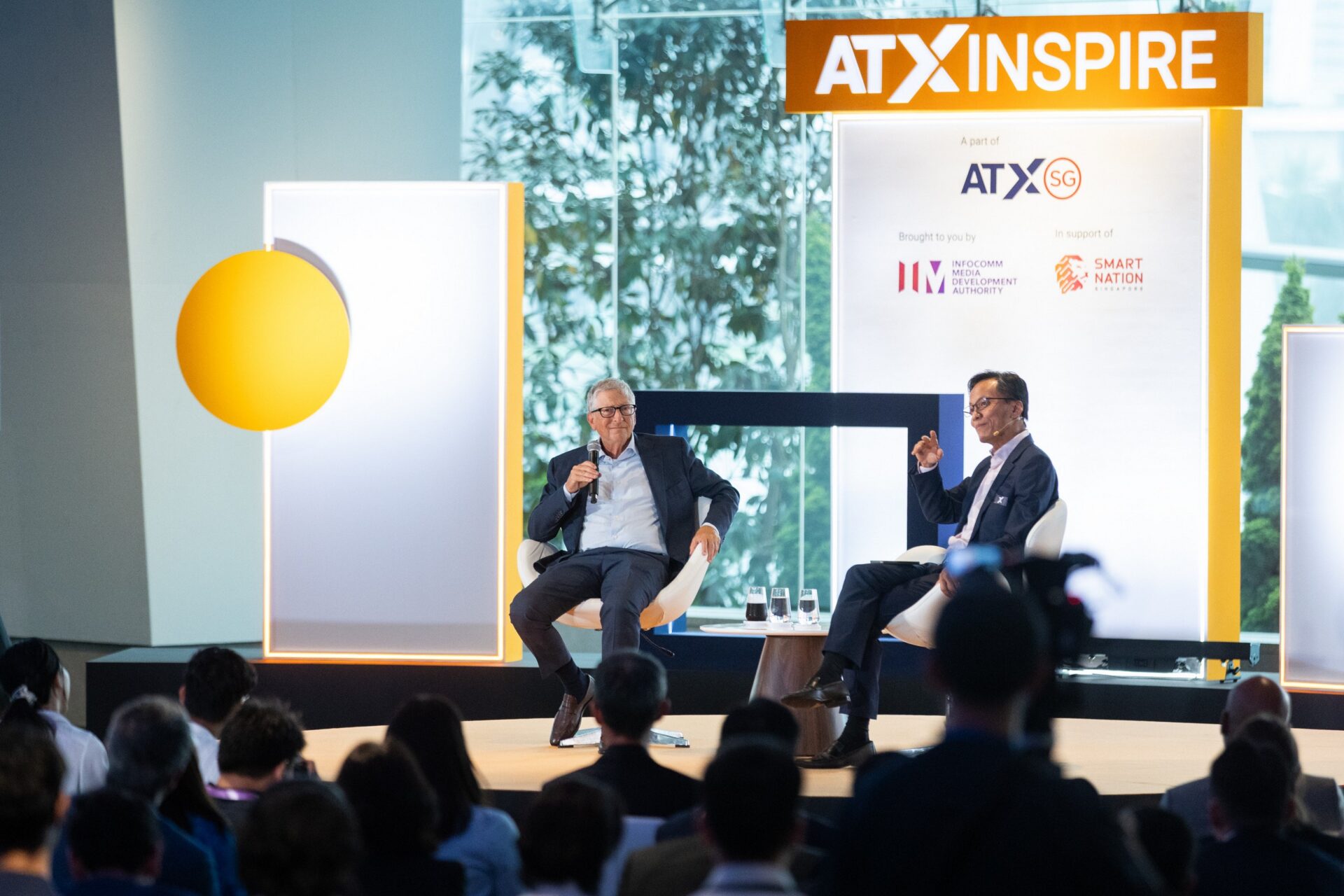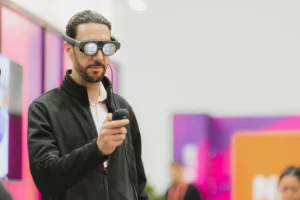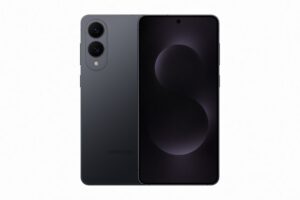
The pace of AI advancement has stunned even Bill Gates, the co-founder of Microsoft and an iconic figure of the technology world who helped put a PC into every office and home with his company’s software.
AI’s transformative potential is not just as a powerful technology, but as a force for global equity, he told an audience of technology leaders in Singapore during a visit yesterday.
From revolutionising healthcare to reshaping education and agriculture, he sees AI as a tool to help level the playing field for lower-income countries.
“Access to a good doctor has long been a rich-country privilege,” he said. With AI, that could change. Gates envisions a future where AI provides accessible solutions for mental health, personalised learning, and even guidance for smallholder farmers battling climate change.
He made these remarks during a one-hour fireside chat with Infocomm Media Development Authority (IMDA) chairman Russell Tham at ATxInspire, part of Asia Tech x Singapore.
Despite the upsides, he warned that the promise of AI would not be realised without the support of philanthropic funding to ensure that these solutions reach the world’s most underserved populations.
It is unacceptable, he noted, that people in poorer regions still suffer from diseases that are easily treatable elsewhere.
This is why the Gates Foundation, worth about US$75 billion, continues to prioritise funding for research into neglected diseases like malaria and tuberculosis.
AI can also accelerate the discovery of new vaccines and drugs and streamline the regulatory processes needed to bring them to market, said Gates, who is the foundation’s chairman.
He linked this vision to a broader shift he has witnessed over decades. Computing, he said, has gone from being rare and expensive to basically free.
He reminded the audience that early mainframes, once the pinnacle of computing power, are now outperformed by everyday smartphones.
His fascination with computing and AI dates back to his teenage years, when he began programming at 13. Throughout his career, he watched Moore’s Law in action and today, he sees AI following a similar path toward ubiquity and affordability.
He shared a personal anecdote that brought the power of modern AI into sharp focus. A few years ago, he challenged the team at OpenAI to develop a system that could understand a biology textbook well enough to ace a United States Advanced Placement (AP) exam.
“What data structures would you create to encode that knowledge and outperform any student?” he asked.
That challenge remained unsolved, until GPT-4 came along.
“Eight months later, they came back. One night, we asked it 20 questions. It got 19 right,” Gates said, visibly impressed.
As AI continues its rapid evolution, he believes the next decade will see it become even more affordable, more accessible, and more profound in its impact.
“It’s hard to overstate how much this changes,” he said.
During his two-day visit, he also met with Prime Minister Lawrence Wong and Senior Minister Lee Hsien Loong.
At the Philanthropy Asia Summit, Gates announced that the Gates Foundation will open an office in Singapore, marking a significant step in strengthening the foundation’s regional presence.






